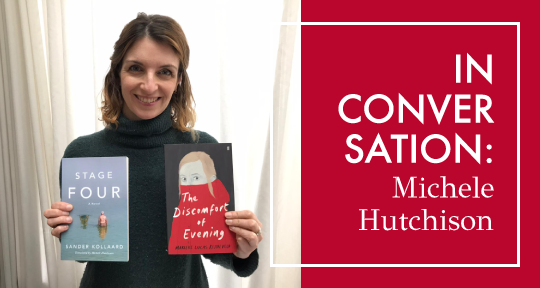With the upcoming announcement of the Booker International shortlist on April 7, our in-house Booker expert is here to take you through the impressive longlist, discuss the intersection between closed-door judging and fervent public online discourses, and the increased visibility of the translator in bringing these vital titles into the English-language sphere, Read on to find out more!
The International Booker Prize, like a number of other British literary prizes, has become a unifying topic amidst a very active online community. Twitter is the kind of place where bubbles of connections and affinities naturally form, but participating in this nexus simultaneously fosters a detached sense of irony that makes any earnest acknowledgment to it a touch mortifying. I am willing to take the risk of too much earnestness today because, for the sake of honesty, my relationship to the International Booker would not be the same without this community.
I became a regular follower of the prize after attending a meeting with the judges at Shakespeare and Company in Paris back in 2016 (a discussion I left certain in the knowledge that Han Kang’s The Vegetarian, translated by Deborah Smith, was going to win, as it did). But it was entering in conversation with other readers and translators through Twitter that made the International Booker an event that I await impatiently every March. We make a friendly race out of reading the entire longlist, and debates about the merits of each selection get unreasonably heated, as we work to change the minds of others about the books we love—or even loath at times. Not to mention that I would be very happy not to have the “what constitutes nonfiction” debate again in my lifetime, which was in full swing both last year, with the longlisting of In Memory of Memory and The War of the Poor, and in 2019 when The Years was shortlisted.
Perhaps more importantly, being part of this community has shaped the approach I take the reading (and reviewing) the list. Thanks to it, I am constantly aware of the labor that goes into each book, not merely the translation but the efforts by the translators themselves, often acting as both agent and publicist. For instance, when Olga Tokarczuk’s Flights won the International Booker in 2018, Jennifer Croft had spent a decade advocating for it to be published. Furthermore, participating even somewhat actively in the discussion happening on places like Twitter is to be aware of the uneven dynamics of the publishing world. Much has rightfully been said about the International Booker’s Eurocentrism (which this year’s longlist provides a refreshing break from), but at the same time, as an online participant in these communities, you see in real time that the Booker is probably replicating trends that exist within publishing at large. READ MORE…



